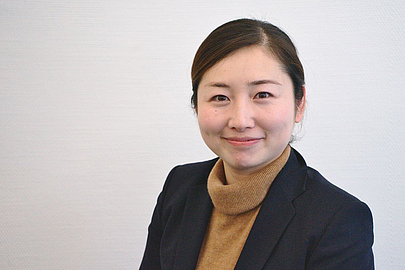


Flexoelectricity is the generation of electric polarization under mechanical strain gradient or mechanical deformation subjected to an electric gradient (converse-flexo). Flexoelectricity is a more general phenomenon than the linear change in polarization due to stress, the piezoelectric effect. In contrast to piezoelectricity, flexoelectricity exists in wider range of centrosymmetric materials especially nontoxic material useful for biomedical application. Flexoelectricity grows dominantly in energy density when scale reduces to submicro or nano, meaning the promise of enabling self-powered nano device such as body implant and small-scale wireless sensor. In Hannover, multiscale characterization of flexoelectric materials and design of flexoeletric structures based are being carried out including topological optimization for single/multi-phase materials, 2D flexoelectric materials characterization, and atomistic to continuum dynamic flexoelectric modelling as shown in Fig. 1. Phononic metamaterials for enhancing the flexoelectricity is being utilized and intergrated in the design to outperform the current design of nano energy harvesters. Interesting phenomenon of utilizing topological insulators and metaplates of phononic structures will be shown that can enhance the performance of nano energy harvester.
Dr. Xiaoying Zhaung’s key research area is computatioanl materials design for nano composites, metamaterials and nanostructures as well as computational methods for multiphysics and multiscale modelling. Dr. Xiaoying Zhuang obtained her PhD in Durham University, UK in 2011, which is followed by her postdoc in Norwegian University of Technology in Trondheim and then as a faculty staff in Tongji University. In 2015, she was awraded with the Sofja Kovalevskaja Programme from Alexander von Humboldt Foundation that brought her to Germany and she focused on the modelling and optimization of polymeric nanocomposite. Her onging ERC Starting Grant is devoted to the optimization and multiscale modelling of piezoelectric and flexoelectric nano structures. In 2018, she was awarded with Heinz-Maier-Leibnitz Prize from DFG (German Research Foundation) and in 2020 awarded with Heisenberg-Professor Programme of DFG.



Flexoelectricity is the generation of electric polarization under mechanical strain gradient or mechanical deformation subjected to an electric gradient (converse-flexo). Flexoelectricity is a more general phenomenon than the linear change in polarization due to stress, the piezoelectric effect. In contrast to piezoelectricity, flexoelectricity exists in wider range of centrosymmetric materials especially nontoxic material useful for biomedical application. Flexoelectricity grows dominantly in energy density when scale reduces to submicro or nano, meaning the promise of enabling self-powered nano device such as body implant and small-scale wireless sensor. In Hannover, multiscale characterization of flexoelectric materials and design of flexoeletric structures based are being carried out including topological optimization for single/multi-phase materials, 2D flexoelectric materials characterization, and atomistic to continuum dynamic flexoelectric modelling as shown in Fig. 1. Phononic metamaterials for enhancing the flexoelectricity is being utilized and intergrated in the design to outperform the current design of nano energy harvesters. Interesting phenomenon of utilizing topological insulators and metaplates of phononic structures will be shown that can enhance the performance of nano energy harvester.
Dr. Xiaoying Zhaung’s key research area is computatioanl materials design for nano composites, metamaterials and nanostructures as well as computational methods for multiphysics and multiscale modelling. Dr. Xiaoying Zhuang obtained her PhD in Durham University, UK in 2011, which is followed by her postdoc in Norwegian University of Technology in Trondheim and then as a faculty staff in Tongji University. In 2015, she was awraded with the Sofja Kovalevskaja Programme from Alexander von Humboldt Foundation that brought her to Germany and she focused on the modelling and optimization of polymeric nanocomposite. Her onging ERC Starting Grant is devoted to the optimization and multiscale modelling of piezoelectric and flexoelectric nano structures. In 2018, she was awarded with Heinz-Maier-Leibnitz Prize from DFG (German Research Foundation) and in 2020 awarded with Heisenberg-Professor Programme of DFG.